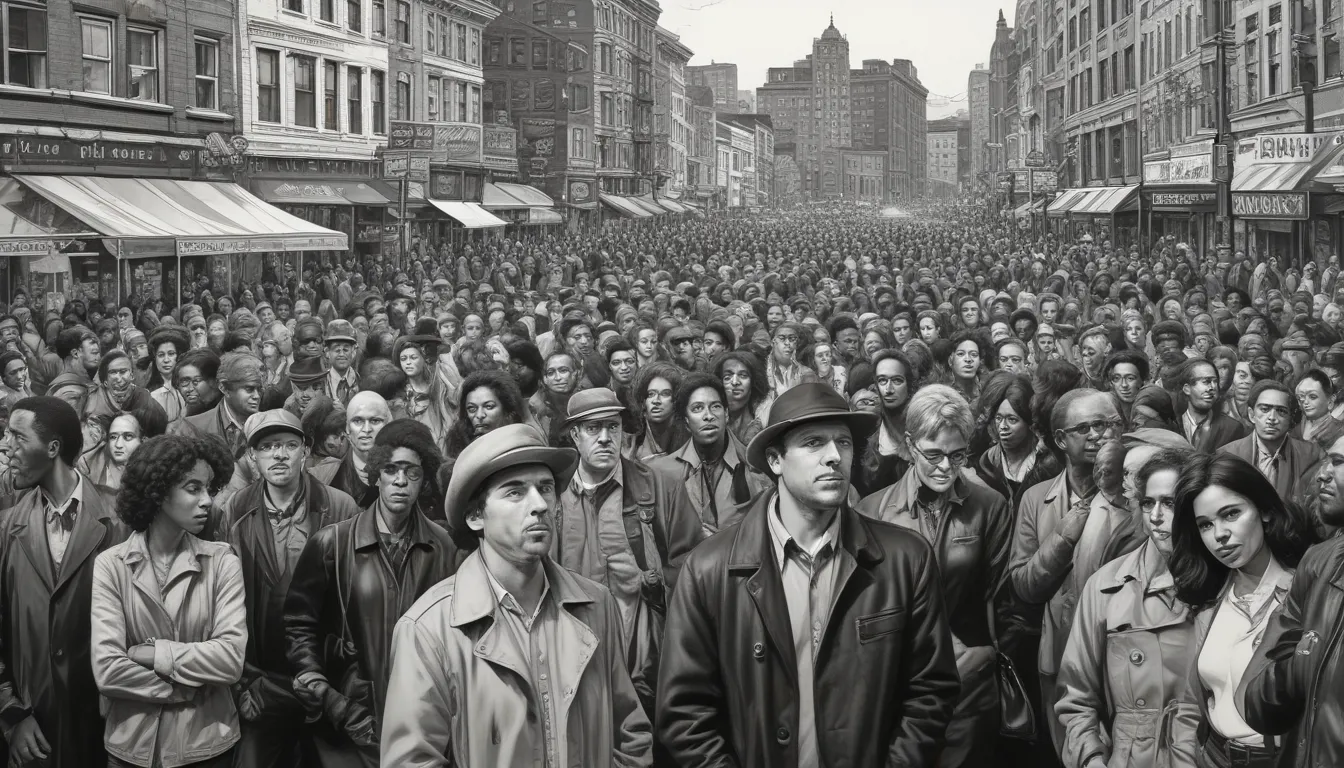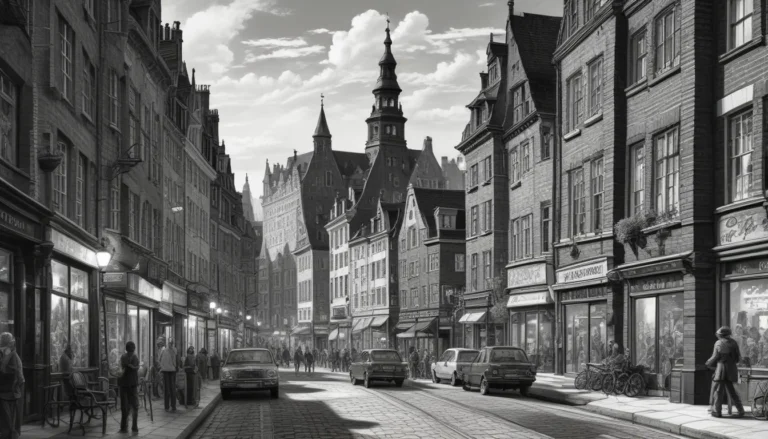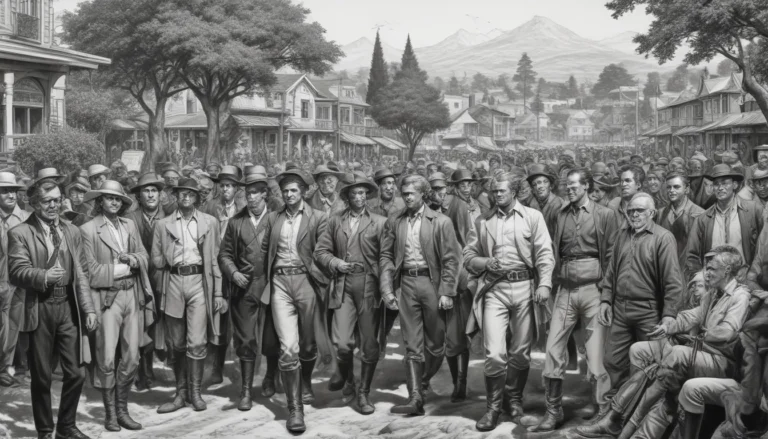The images in our articles are for illustrative purposes only and may not exactly match the content. They are intended to capture your interest and complement the text, not to replace it.
Boston, Massachusetts, a city known for its rich history and vibrant culture, has served as a catalyst for numerous community and social movements that have left an indelible mark on the city’s identity. From the American Revolution to LGBTQ+ rights advocacy, Boston has been a hotbed of activism and advocacy, shaping the fabric of the city with its enduring legacy of social change. Let’s dive into 8 captivating facts about the community and social movements that have defined Boston, shedding light on pivotal moments and influential figures that have contributed to the city’s vibrant tapestry of social progress.
Unveiling the Historical Significance of Boston’s Community Movements
- Boston has a rich history of social movements, from the American Revolution to LGBTQ+ rights advocacy, making it a pivotal location for community activism and change in the United States.
- The city’s involvement in abolitionism, women’s suffrage, civil rights, labor activism, environmental conservation, and disability rights reflects a deep commitment to social justice and equality.
Boston: A Beacon of Revolutionary Spirit
Boston played a pivotal role in the American Revolution, serving as the site of key events such as the Boston Tea Party and the Battle of Bunker Hill. The city’s legacy of political activism and resistance makes it a crucial hub for the development of community and social movements in the United States.
The Abolitionist Movement: Boston’s Vanguard of Anti-Slavery Activism
During the 19th century, Boston emerged as a hub of anti-slavery activism with influential figures like William Lloyd Garrison and Frederick Douglass leading the charge. The city’s strong abolitionist sentiment and the organization of anti-slavery societies played a significant role in the broader social movement against slavery in the United States.
Pioneering Women’s Suffrage Movement in Boston
Throughout the late 19th and early 20th centuries, Boston stood at the forefront of the fight for women’s suffrage, hosting crucial suffragist conventions and providing a platform for leading activists such as Lucy Stone and Julia Ward Howe. These efforts were instrumental in advancing women’s voting rights and fostering a dynamic community of activists in Boston.
Championing Civil Rights: Boston’s Response to the Busing Crisis
In the 1970s, Boston witnessed a major civil rights movement sparked by the desegregation of schools. The busing crisis brought issues of racial inequality to the forefront, leading to protests, activism, and community organizing aimed at addressing systemic racism and promoting civil rights in the city.
Labor Activism: Boston’s Tradition of Fighting for Workers’ Rights
From the labor strikes of the 19th century to present-day advocacy for improved working conditions, Boston has been a stronghold for labor activism and organizing. The city’s history includes significant labor movements and unionization efforts, reflecting a deep-rooted tradition of community-based social movements focused on labor rights.
Leading the Charge for LGBTQ+ Rights Advocacy
Boston has been a focal point for LGBTQ+ rights advocacy, with a vibrant community at the forefront of activism through protests, pride events, and political campaigns. These efforts have been instrumental in advancing LGBTQ+ equality and visibility, contributing to a broader movement for societal acceptance and inclusion.
Environmental Activism and Conservation Efforts in Boston
Boston’s proximity to natural landscapes and coastal areas has made it a center for environmental activism and conservation initiatives. From protecting local parks and waterways to addressing climate change challenges, the city has been a driving force for community-based environmental movements, emphasizing a commitment to environmental stewardship and sustainability.
Pioneering Disability Rights Advocacy in Boston
Boston has been a pioneer in the disability rights movement, with organizations and individuals advocating for accessibility, inclusion, and equal rights for people with disabilities. The city’s efforts have contributed to a broader social movement focused on creating a more equitable and accessible society for individuals with diverse abilities.
Embracing Boston’s Legacy of Social Movements
Boston, Massachusetts, stands as a city with a rich history of community and social movements that have shaped its vibrant identity. From the American Revolution to the civil rights movement and beyond, Boston has been a hub of activism and progress driven by its diverse neighborhoods and passionate residents. The city’s commitment to community engagement and advocacy serves as a powerful testament to the enduring spirit of social movements in Boston, inspiring change and fostering unity.
FAQs: Navigating Boston’s Social Movement Landscape
- Notable community movements in Boston’s history include the abolitionist movement, women’s suffrage movement, civil rights movement, and LGBTQ+ rights advocacy.
- Community activism has significantly impacted Boston’s social, political, and cultural landscape, leading to positive changes in areas such as education, housing, healthcare, and employment opportunities.
- Grassroots organizations play a vital role in mobilizing communities, raising awareness about social issues, and advocating for change, serving as catalysts for larger social movements in Boston.
- Individuals can engage in community and social movements in Boston by volunteering with local organizations, participating in advocacy campaigns, attending rallies and events, and supporting initiatives that promote social justice and equality.
- Current social movements in Boston address issues such as racial justice, affordable housing, environmental sustainability, immigrant rights, and healthcare access, among others.
- Resources for learning more about Boston’s social movements include historical archives, museums, cultural institutions, lectures, panel discussions, and connecting with local historians and activists.
Boston’s identity as a city that values diversity, inclusion, and social progress is deeply intertwined with its history of community and social movements. Despite challenges such as systemic inequality and limited resources, the resilience and determination of activists continue to propel progress in Boston, shaping a brighter future for all. Trust in our commitment to quality and authenticity as we explore the transformative power of social movements in Boston.






